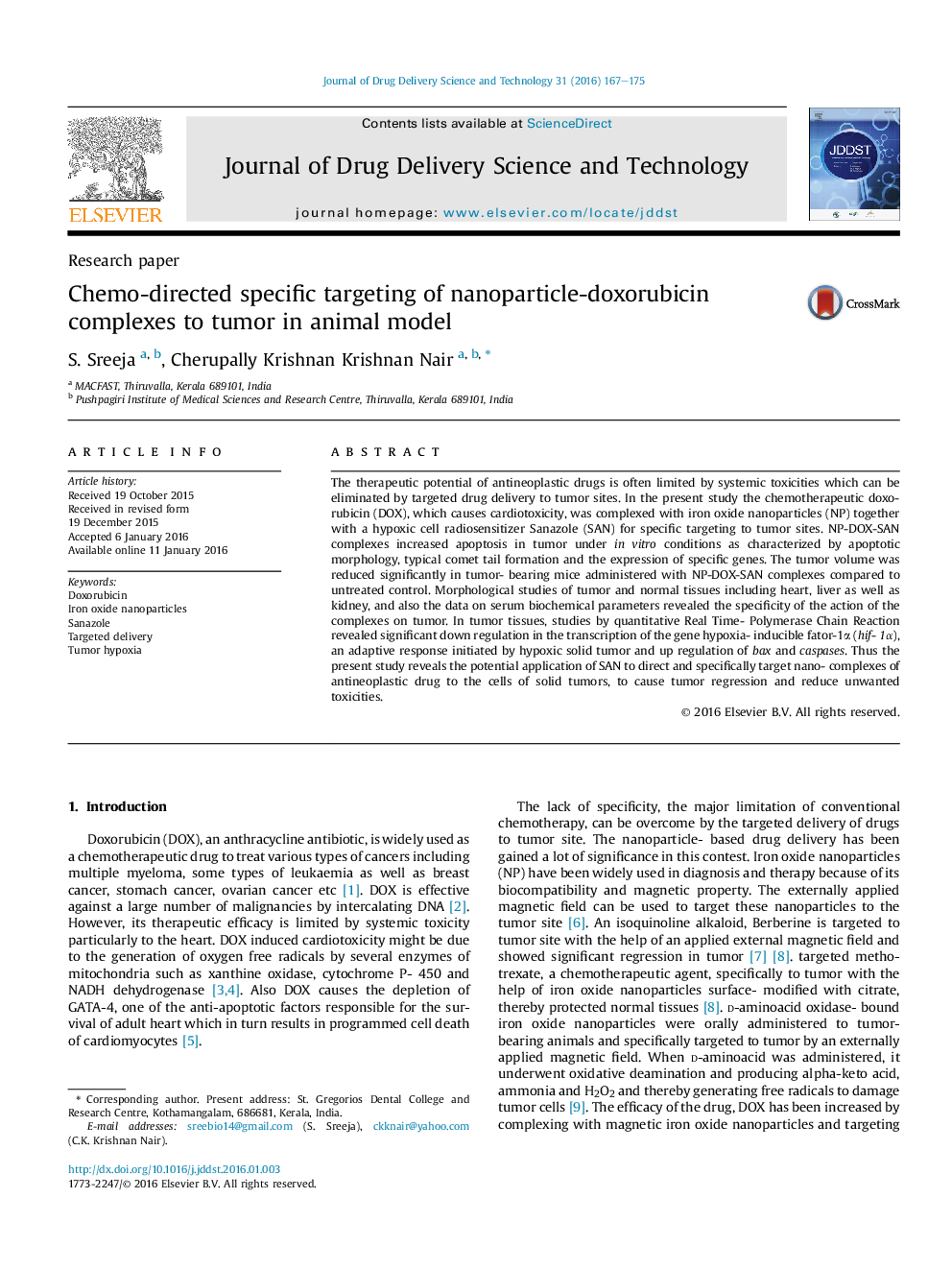| Article ID | Journal | Published Year | Pages | File Type |
|---|---|---|---|---|
| 2483089 | Journal of Drug Delivery Science and Technology | 2016 | 9 Pages |
The therapeutic potential of antineoplastic drugs is often limited by systemic toxicities which can be eliminated by targeted drug delivery to tumor sites. In the present study the chemotherapeutic doxorubicin (DOX), which causes cardiotoxicity, was complexed with iron oxide nanoparticles (NP) together with a hypoxic cell radiosensitizer Sanazole (SAN) for specific targeting to tumor sites. NP-DOX-SAN complexes increased apoptosis in tumor under in vitro conditions as characterized by apoptotic morphology, typical comet tail formation and the expression of specific genes. The tumor volume was reduced significantly in tumor- bearing mice administered with NP-DOX-SAN complexes compared to untreated control. Morphological studies of tumor and normal tissues including heart, liver as well as kidney, and also the data on serum biochemical parameters revealed the specificity of the action of the complexes on tumor. In tumor tissues, studies by quantitative Real Time- Polymerase Chain Reaction revealed significant down regulation in the transcription of the gene hypoxia- inducible fator-1α (hif- 1α), an adaptive response initiated by hypoxic solid tumor and up regulation of bax and caspases. Thus the present study reveals the potential application of SAN to direct and specifically target nano- complexes of antineoplastic drug to the cells of solid tumors, to cause tumor regression and reduce unwanted toxicities.
Graphical abstractFigure optionsDownload full-size imageDownload as PowerPoint slide
